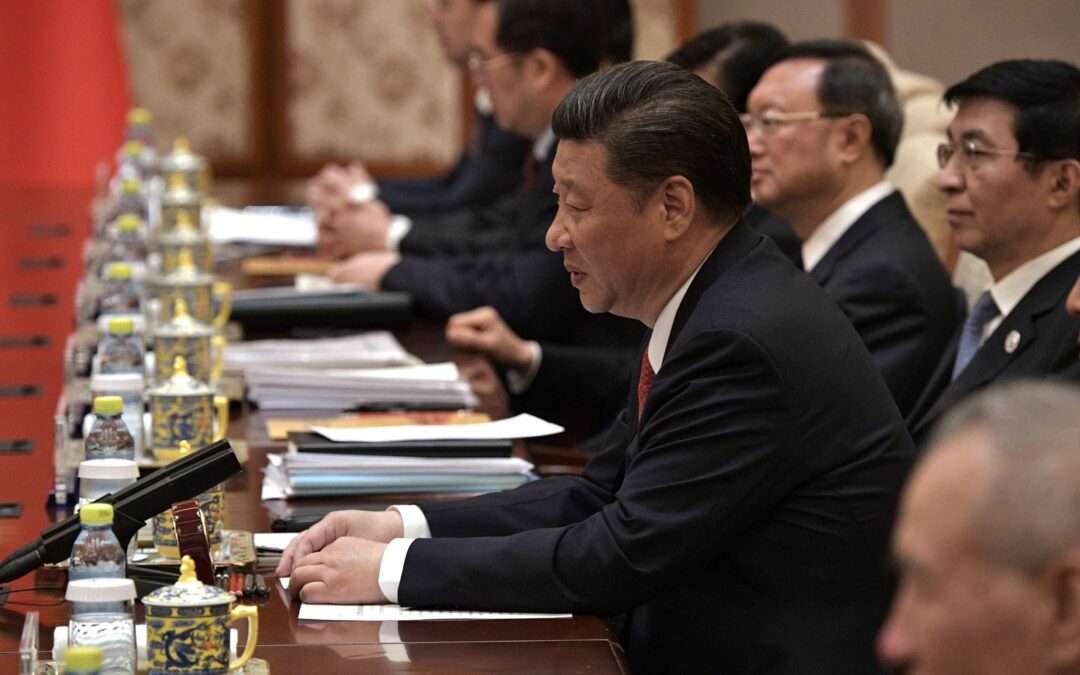Today, the National Legal and Policy Center presented a “Communist China Risk Audit” proposal at the Procter & Gamble annual shareholder meeting, which would require the company to produce a report that addresses its vulnerabilities related to its business and ambitious expansion plans in the communist country.
Procter & Gamble’s board of directors opposed our proposal, as explained on page 93 of the firm’s proxy statement. NLPC filed a Notice of Exempt Solicitation report with the Securities and Exchange Commission in response to the board’s opposition statement on September 1, 2023, outlining the audit’s necessity in greater detail.
Speaking at the meeting was Luke Perlot, associate director of NLPC’s Corporate Integrity Project. A transcript of his three-minute remarks, which can be heard here, can be found below:
Good Afternoon.
Procter & Gamble’s disclosures related to operations in China are woefully inadequate.
While Procter & Gamble provides a generic discussion of international business risks in its mandatory 10-K annual report, the risks specific to China should be addressed in more detail. The magnitude of China risk is not comparable to the general business risks disclosed by P&G, many of which are indistinguishable from the disclosures made by other public companies.
The Chinese system of state capitalism is inseparable from the CCP. Thus, it is impossible for P&G to conduct business in China without exposing itself to these operational, reputational, and legal risks, which reach every part of P&G’s business:
For example, China has recently demonstrated its intention to project power by repeatedly conducting military operations around Taiwan. Greater China is P&G’s third-largest sales market, with roughly $8 billion in net sales representing ten percent of global revenue.
A regional conflict over Taiwan could disrupt or eliminate this revenue, in addition to the eight percent of revenue derived from Asia Pacific. Russia’s invasion of Ukraine in early 2022 provides recent evidence of how damaging a regional conflict can be.
While many firms are decreasing reliance on Chinese suppliers, P&G has not announced substantial efforts to diversify supply chains or mitigate supply chain risk in China.
Additionally, P&G’s Privacy Policy discloses several ways that the firm collects data on its users. Unlike the governments in many Western countries, the CCP can access corporate user data. P&G needs to disclose the safeguards it has in place to protect against CCP data usage, or else it may be complicit in CCP’s authoritarian control.
Lastly, P&G continues to cooperate with the Chinese government despite evidence of forced labor and genocide in the Xinjiang Uyghur Autonomous Region. P&G was an official sponsor of the 2022 Winter Olympics in Beijing, despite calls from the Biden administration for a “diplomatic boycott” over the CCP’s human rights abuses. These actions are incongruent with the firm’s support for the U.N. Guiding Principles for Business and Human Rights, which says that “business enterprises should respect human rights. This means that they should avoid infringing on the human rights of others and should address adverse human rights impacts with which they are involved.”
If I had more time, I could also address things like intellectual property theft, cybersecurity, espionage, freedom of movement, freedom of association, freedom of speech, Zero COVID policies, Chinese government taking over foreign businesses which include American ones, and so on.
We urge the Board to be more transparent about P&G’s vulnerabilities in China, and for my fellow shareholders to vote for Proposal number 6.
Thank you.
Read NLPC’s shareholder proposal for the 2023 Procter & Gamble annual meeting here.
Listen to Perlot’s remarks at the meeting in support of the proposal here.
(Pictured above: Chinese Communist Party Chairman Xi Jinping.)









